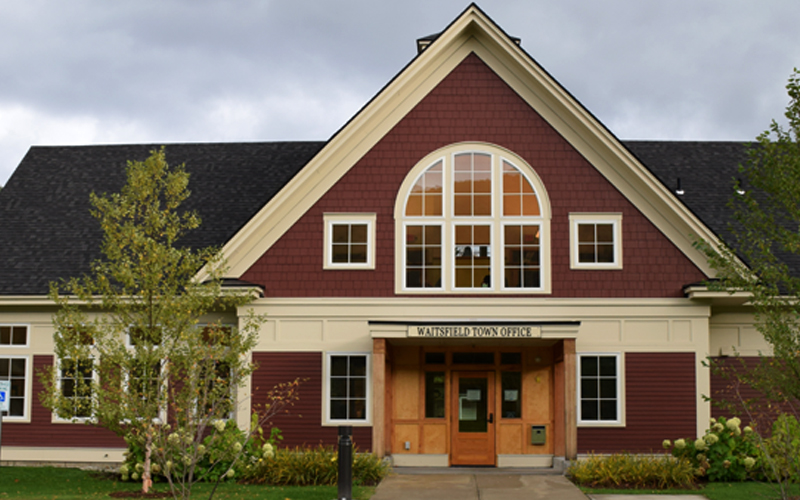After considering whether to create a standing committee called the Waits House Commission to manage the town-owned property, the Waitsfield Select Board ultimately decided that was premature and would need to wait until more progress is made on how to adapt and re-use currently unused parts of the Wait House.
The General Wait House Committee presented its final report to the select board on January 3 with committee chair Larissa Ursprung and other committee members.
Ursprung reviewed aspects of the written report which had been provided to the select board by the committee and explained that the majority of the committee members agreed that the building should not be sold, and that if the property is retained by the town, there are several decisions to be considered.
Committee member and town planning commission chair Ann Marie Harmon explained two paths forward at the Wait House -- one being to establish a museum and the other to pursue adaptive reuse of the barns as community space after a significant rehabilitation of those buildings.
At the January 3 meeting, the select board learned that another aspect of continued ownership of the buildings is establishing an organization to oversee the rehabilitation work and ongoing maintenance and administration of the property.
Several options were noted as possible, with mention of the financial implications to be considered, such as potential fundraising capabilities and grant opportunities. Coordination with the select board and the level at which town funding should be provided was also discussed, along with the possibility of examining other models of town ownership/organizational administration.
Select board member Fred Messer made a motion to establish a standing committee called the Wait House Commission for the purpose of day-to-day maintenance and management of the Wait House, to act as landlords, and to develop short- and long-term plans for the Wait House, all of which to be approved by the select board. Details of the formation would be developed by the commission and presented to the select board at a later date for approval.
The board discussed this and came to the general agreement that an oversight committee is critical but that it would be premature to vote to establish one without some additional study of what structure would be most beneficial, organizationally and financially.
Messer withdrew his motion, and it was agreed that this matter will be on the board’s agenda at some point within the upcoming two months.
Messer also noted that short-term deferred maintenance at the building, which is estimated to be in the $100,000 range, should be addressed in a timely manner.












